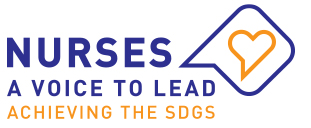Updating regulatory systems, Papua New Guinea
Streamlined systems of registration and accreditation dramatically impact patient safety and workforce planning.
Papua New Guinea is simultaneously experiencing a health workforce and maternal health crisis. In order to carry out the necessary workforce planning, the Papua New Guinea Nursing Council, a regulatory organisation overseeing nursing and midwifery registration, education and scope of practice, needed to analyse and develop up-to-date regulatory systems, including accreditation of existing and new schools of nursing.
However, registration data for nurses and midwives had not been accurately captured since 2004. Schools of Nursing did not have current accreditation status; some had not been audited for 30 years. There was no accurate or current knowledge of the existing nursing and midwifery workforce in Papua New Guinea, making workforce planning difficult.
Michele Rumsey and Nina Joseph, from the World Health Organization Collaborating Centre for Nursing, Midwifery and Health Development at the University of Technology Sydney, partnered with the Papua New Guinea Nursing Council to address this dearth in data and bring the information up-to-date.
Working with relevant departments within the National Department of Health, including IT and the Medical Board to ensure the system was able to be reviewed, they developed an accurate database reflecting current registered nurses and midwives including graduates and overseas practitioners. Existing and proposed new schools of nursing were audited through the Nursing Council, many of which have not been audited for 30 years. All these institutes were provided with either provisional or full accreditation to ensure the quality of nurses and midwives graduating is the highest it can be.
Currently the registration database is up to date. Overseas and student graduates practitioners are registered (provisionally). Registered nurses and midwives are required to submit their competencies. Educational institutes are audited and recommendations carried out prior to accreditation. All registration forms are available to anyone, anytime for the first time via the National Department of Health website.

